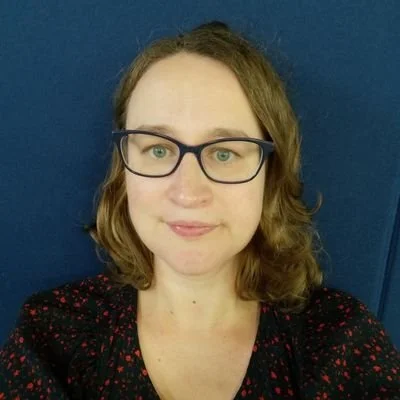ABOUT
THE MAKEUP MUSEUM
Dedicated to the preservation, research and exhibition of cosmetics from antiquity through the 21st century, the Makeup Museum® is a progressive, unique space that explores makeup history, culture, design and packaging from all eras. The Makeup Museum is the first museum in the U.S. devoted exclusively to cosmetics and a leader in conceptualizing new ways of thinking about makeup and its cultural and artistic significance. Particular focus is given to previously unknown or little-known about histories and topics, offering an alternative account of makeup that challenges conventional narratives. Using an interdisciplinary approach that blends a variety of fields, especially material culture, art history, sociology, business, and gender studies, the Makeup Museum offers a truly original perspective on makeup. For more information please visit the Museum’s main website at makeupmuseum.org.
The Makeup Museum is very grateful for the generous support provided by the Institute for Classical Studies for making the I’m Your Venus exhibition possible.
CONFERENCE ORGANIZERS
Dr. Laurence Totelin
School of History, Archaeology and Religion
Cardiff University
Dr. Totelin is a historian of Greek and Roman Science, Technology, and Medicine. She has published extensively on the history of ancient pharmacology, gynaecology, and botany.
Dr. Totelin has a background in Classics/Ancient History (BA, Free University of Brussels); History and Philosophy of Science (MPhil, Cambridge); and History of Medicine (PhD, UCL). She joined Cardiff University in 2009 after a Wellcome postdoctoral fellowship at the University of Cambridge.
She is currently carrying out research on the history of bodily fluids, and in particular breastmilk; the history of pharmacological retail; the history of plant grafting; and the history of ancient cosmetics and sexual aids, such as aphrodisiacs.
Dr. Totelin also enjoys sharing her research through the medium of blogging, and was one of the co-editors of the Recipe Project. She was involved in the design of the FutureLearn MOOC Health and Wellbeing in the Ancient World. Currently she is administrator for the Women's Classical Committee, UK and the review co-editor for the Journal of Hellenic Studies. She is also a fellow of the Royal Historical Society and of the Linnean Society.
Dr. Jane Draycott
Department of Classics
University of Glasgow
Jane Draycott is a Roman historian and archaeologist. She investigates science, technology, and medicine in the ancient world, and is particularly interested in the history and archaeology of medicine; impairment, disability, and prostheses; and botany and horticulture. Recently, she has begun exploring the use (and abuse) of history and archaeology in video games, particularly those set in classical antiquity. She has also long had a special interest in Graeco-Roman Egypt and the Roman client kingdom of Mauretania.
She was awarded a BA (Hons) in Archaeology and Ancient History and an MA in Ancient History from Cardiff University, an MSc in Forensic Archaeology and Anthropology from Cranfield University, and a PhD in Classics from the University of Nottingham. Following the completion of her doctorate, she was awarded two postdoctoral fellowships: Rome Fellow at the British School at Rome and Lord Kelvin Adam Smith Research Fellow in Classics at the University of Glasgow. Over the last decade, she has worked in academic institutions in the UK and Italy, and excavated sites ranging from Bronze Age villages to First World War trenches across the UK and Europe. She is currently Lecturer in Ancient History at the University of Glasgow and co-director of the University of Glasgow’s Games and Gaming Lab.
Her research has been funded by organisations including the AHRC, the Wellcome Trust, and the Royal Society of Edinburgh. She has written books, book chapters, and articles on a range of subjects related to ancient history and archaeology for both specialist and non-specialist readership. Her academic publications include the monographs Approaches to Healing in Roman Egypt and Roman Domestic Medical Practice in Central Italy from the Middle Republic to the Early Empire, and the edited volumes Bodies of Evidence: Ancient Anatomical Votives Past, Present and Future, Prostheses in Antiquity, Women in Historical and Archaeological Video Games, and Women in Classical Video Games. She has discussed aspects of her research on television, in vidcasts, and in podcasts.
UNIVERSITIES
Cardiff University
Founded in 1883, Cardiff University is established as one of Britain's leading research universities. Cardiff University is the only Welsh member of the Russell Group of research-intensive British universities and is the third oldest university in Wales. Cardiff is made up of three colleges: Arts, Humanities and Social Sciences; Biomedical and Life Sciences; and Physical Sciences and Engineering. In the Research Excellence Framework (REF) 2021 90% of the University’s research was confirmed as world-leading or internationally excellent, making Cardiff a top 20 university in the UK for the overall quality of its research.
University of Glasgow
The University of Glasgow is the fourth oldest university in the English-speaking world, founded in 1451. Based in Scotland’s largest city, the University of Glasgow is one of the world’s top 100 universities and currently has 26,000 students from over 120 different countries enrolled. Glasgow is a member of the Russell Group of UK research universities. Research excellence within disciplines and interdisciplinary teams are at the heart of the university’s strategy and are helping Glasgow to address global challenges. It is particularly renowned for its programs in classical antiquity, an area that has been taught at the university for centuries.



